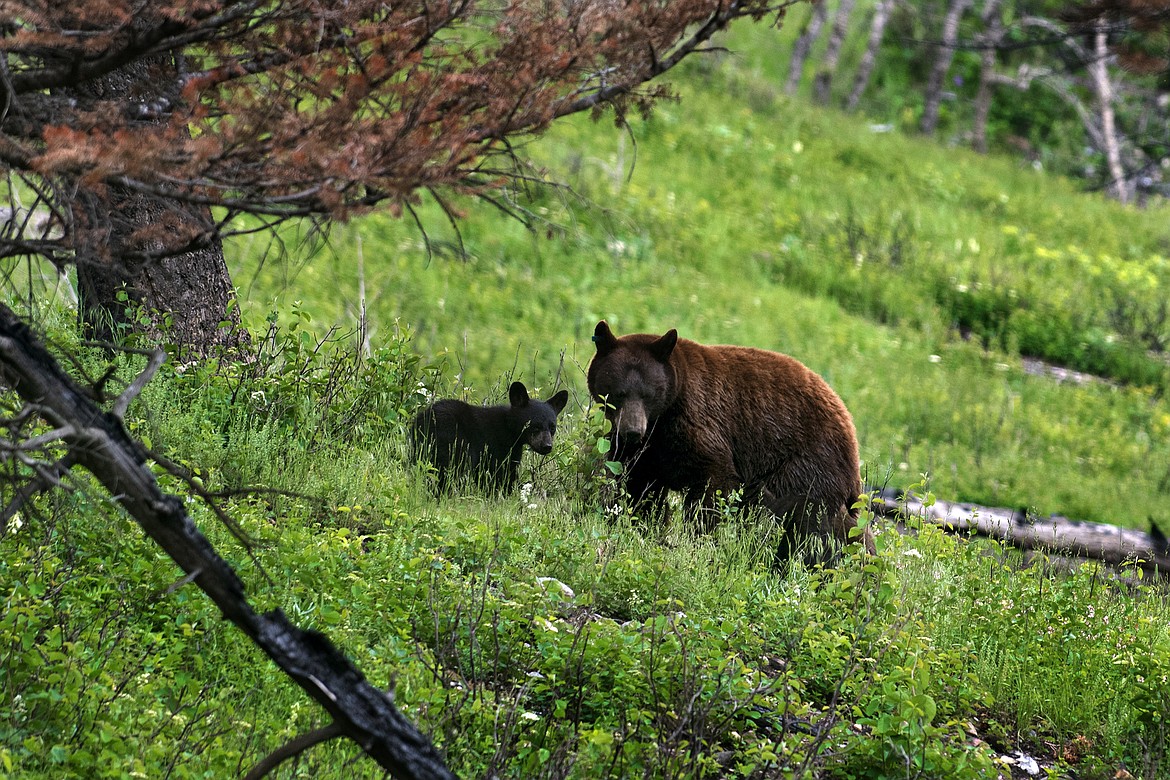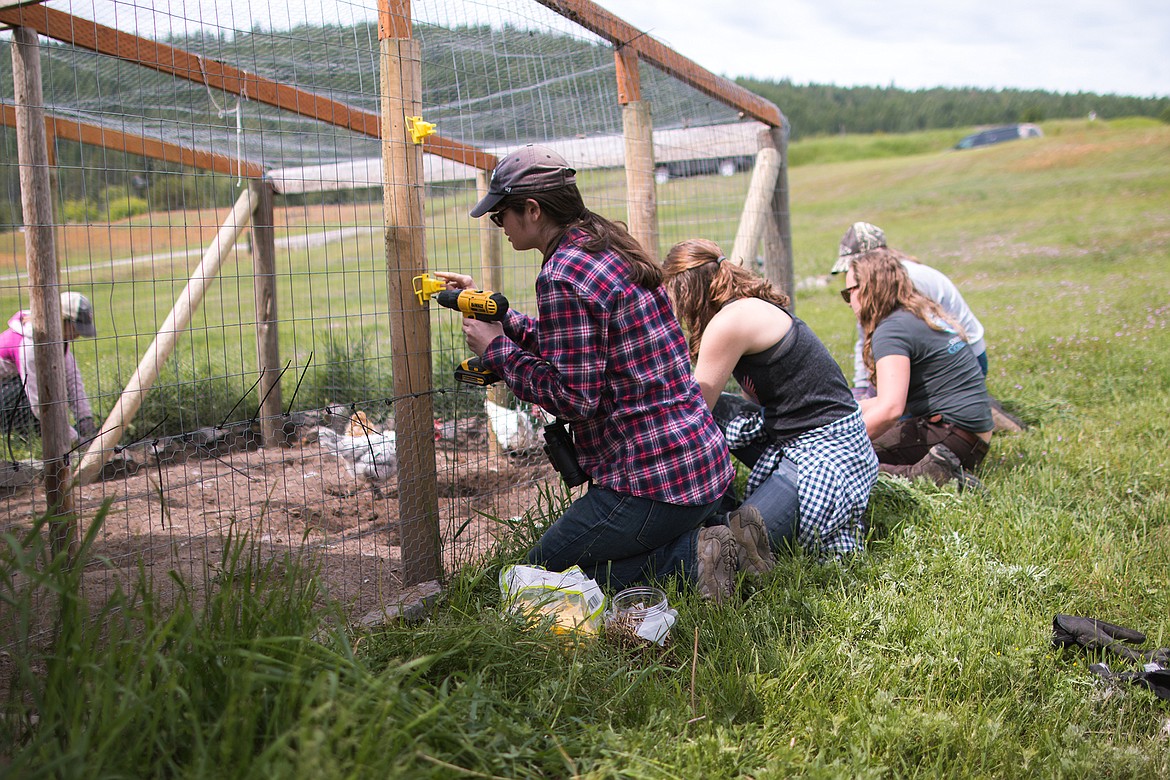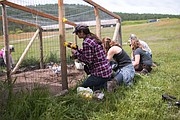Swan Valley program seeks to limit human-bear conflicts
Living in northwest Montana means living around bears, but one local group is working to help prevent the kinds of human-bear conflicts that have led to problems in the past.
Swan Valley Bear Resources, a cooperative effort between the Swan Valley Connections nonprofit group and several natural resource entities including the National Forest Service, Montana Fish Wildlife and Parks and U.S. Fish and Wildlife Service among others, is helping area residents find ways to address bear conflicts on private and public property.
“We want to provide resources to people living in rural bear country so they can coexist with the bears. Over time, we have put together the resources to be able to provide a helping hand for those who are interested in taking advantage of our programs,” Forest Service Wildlife Biologist Mark Ruby said. “It’s a problem that will always be there when bears and people overlap in the same area, but we are hopeful that this partnership will continue to help keep those conflicts at a minimum.”
According to Ruby, the program is a way to help Montana Fish, Wildlife and Parks Region 1 Bear Manager Tim Manley as he attempts to monitor and curtail human-bear conflicts over a wide area of Northwest Montana.
“The problem is, when a bear gets into human foods, it can easily become habituated, used to and even dependent on those food sources. Fish, Wildlife and Parks in this region have to deal with an area all the way from the Canadian border all the way down to the Swan Lake area. That is a huge amount of land to cover, so we wanted to develop a way to help them out.”
With the help of groups like the Department of Natural Resources and Conservation and Defenders of Wildlife, Swan Valley Bear Resources has helped to curtail the number of human-bear conflicts in the Upper Swan Valley since the group’s formation in 2008.
“When this organization got started more than 10 years ago, the Upper Swan Valley was a place that was known as a grizzly bear mortality scene. It was where a lot of bears were getting into conflicts with humans, which was leading to a lot of bear mortalities,” Swan Valley Connections Conservation Director Luke Lamar said. “This group formed to help deal with that and, over time, we have been able to reduce the number of conflicts in the area. The number varies from year to year, but it is down quite a bit from what it used to be.”
Swan Valley Bear Resources uses a number of programs to help with their mission, including a bear resistant garbage container loaner program, an electric fencing program, property consultations and public information events.
The bear resistant garbage container loaner program, which loans containers to residents for as long as they want to use them, has distributed 270 cans since the program began.
The electric fencing program helps local landowners construct bear resistant fences to temporarily or permanently secure attractants, such as small livestock, orchard trees, gardens, and other bear attractants. From initial site visit, consultation and planning, the program helps with projects from start to finish.
The group also offers free consultations to interested residents to brainstorm ideas to secure attractants before they result in a bear conflict.
The groups outreach programs include the publication of Bear News, an annual community newsletter that highlights current events relating to bears as well as their annual Spring Wakeup Social and Summer Bear Fair informational events. This year’s events have been postponed due to COVID-19 concerns, but should still happen later in the year.
Luckily, Lamar says the number of bear-human conflicts so far this year have been minimal.
“It’s been a fairly quiet year in the Upper Swan so far. There have been some bears in the area that have been trapped and relocated, but this year has not been that bad.”
While the number of conflicts has been low, Lamar continues to urge people to secure any possible bear attractants on their property, including chickens, birdseed, horse feed, dog food, hummingbird feeders and garbage.
For more information about Swan Valley Bear Resources, or take advantage of their programs, contact Lamar at luke@svconnections.org or visit them online at https://www.swanvalleyconnections.org/swan-valley-bear-resources. ■



